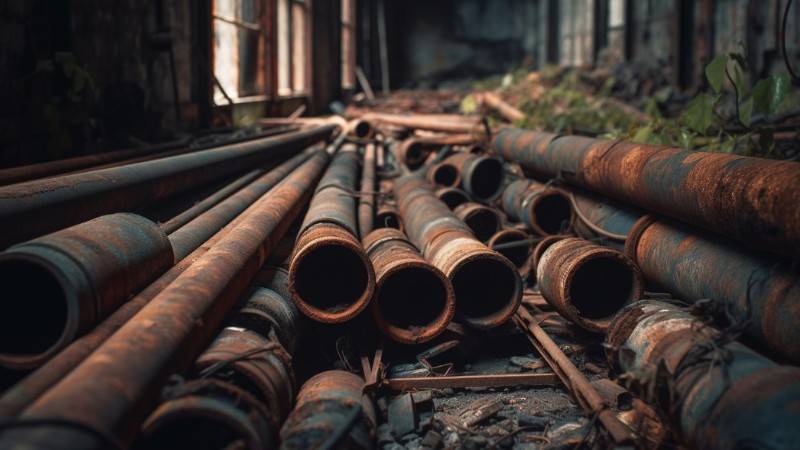Isn’t it fascinating how some of the most impactful sustainability practices often fly under the radar?
Metal recycling is one such gem that’s frequently overlooked, yet its significance in our fight against climate change is monumental.
Did you know that recycling metals, especially aluminum, can save a significant amount of energy?
Let’s take aluminum as an example. Producing aluminum from its ore requires an immense amount of heat and electricity. In fact, aluminum production in the U.S. consumes more electricity than any other manufactured product.
But here’s the kicker: recycling aluminum, like our everyday soda cans, bypasses this energy-intensive process. By simply cleaning and re-melting recycled aluminum, we save a whopping 94% of the energy that would be needed if we started from scratch with ore. To put that into perspective, in 2018, recycling produced 3.7 million tons of aluminum in the U.S., saving enough energy to power 8 million homes!
Throughout this guide, we’ll explore the intricacies of metal recycling, delve into the world of scrap metal, and understand the nuances of scrap metal recycling.
So, buckle up, and let’s embark on this sustainable journey together!
What Is Scrap Metal Recycling?

Despite the name, “scrap” metal isn’t just some useless waste. In fact, it’s a treasure trove of potential waiting to be tapped into. Scrap metal is a combination of waste metal, metallic material, and any product containing metal that’s ripe for recycling.
This can be anything from vehicle parts, building supplies, to surplus project materials.
The beauty of scrap metal is its ability to be repurposed into new products, which not only reduces the environmental impacts of mining but also conserves our limited landfill space.
Now, when we talk about scrap metal, it’s essential to understand the two main categories: ferrous and nonferrous metals.
The difference?
It’s all about iron. Ferrous metals, like iron and steel, contain iron and are magnets’ best friends. If you’ve got a magnet handy, you can easily determine if a metal is ferrous.
If the magnet sticks, it’s ferrous.
On the other hand, nonferrous metals, such as copper, brass, aluminum, zinc, and others, don’t contain iron and won’t cozy up to your magnet. These metals are often more valuable in the recycling world due to their resistance to corrosion and overall versatility.
For instance, aluminum, found in everyday items like soda cans, is a star in the metal recycling industry. When recycled, it saves a staggering 80% of the energy used to create it initially.
Common sources of scrap metal range from household items like aluminum cans, appliances, and even old vehicle parts to larger industrial waste. The potential for recycling these metals is vast, and the benefits are even more significant.
What Types of Metal Can Be Recycled?
Metal recycling is a crucial step towards a sustainable future. Not only does it reduce the need for mining new ores, but it also conserves energy and reduces greenhouse gas emissions.
Let’s delve into the types of metals that can be recycled and understand their significance.
What Are Ferrous Metals?
Ferrous metals primarily contain iron and are magnetic. They are known for their strength, making them ideal for various applications, from construction to automobile manufacturing.
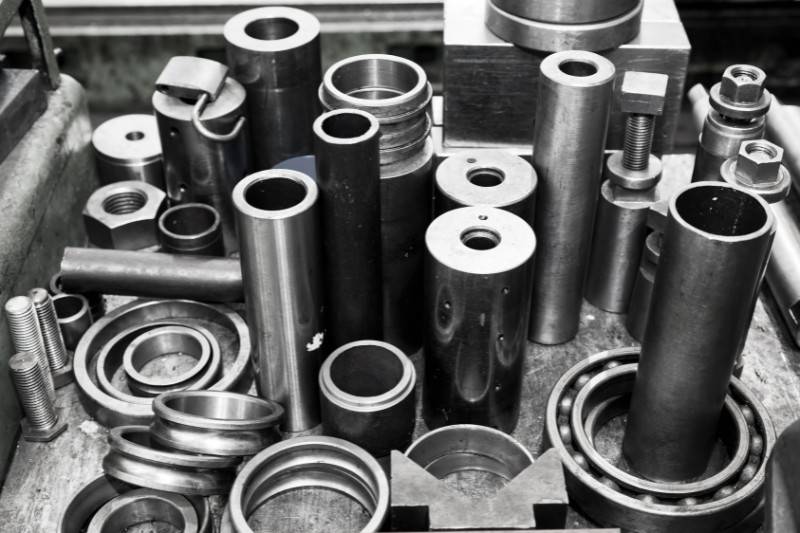
Common Ferrous Metals
- Steel: A major component in buildings, infrastructure, tools, ships, cars, machines, and appliances. Interestingly, most steel items today contain between 25% and 100% recycled content, making steel the most recycled material globally.
- Cast Iron: Often used in cookware and heavy-duty machinery.
- Wrought Iron: Commonly found in decorative pieces and some tools.
- Mild Steel and Carbon Steel: These are prevalent in construction and automobile industries.
Ferrous metals are found in items like shipping containers, industrial piping, domestic tools, household appliances, vehicles, and railway tracks.
What Are Non-Ferrous Metals?
Non-ferrous metals do not contain iron, making them non-magnetic and resistant to rust. They are generally more malleable than ferrous metals.
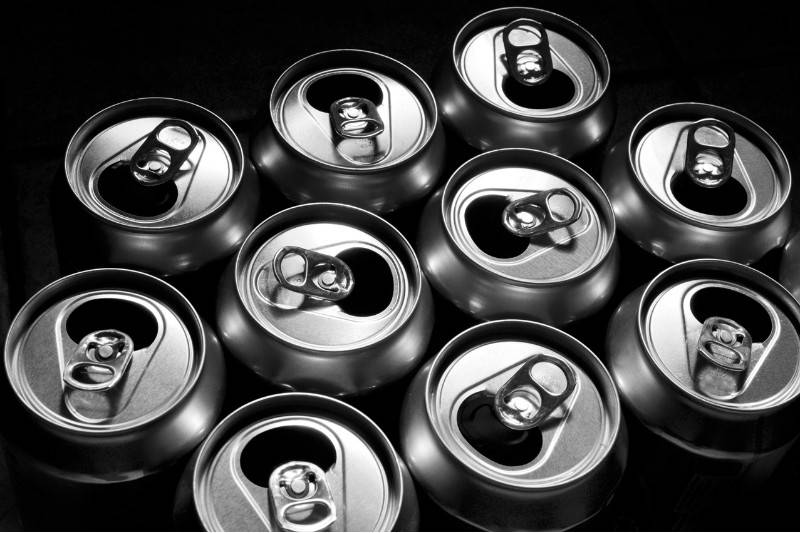
Common Non-Ferrous Metals
- Aluminum: This metal is used in a plethora of items, from cans to vehicles, aircraft, boats, bicycles, computers, cookware, gutters, siding, and electrical wiring. Recycling aluminum is energy-efficient, with recycled cans using just 5% of the energy required to produce them from scratch.
- Copper: A valuable metal that retains up to 95% of its original value when recycled. It’s commonly found in wiring, electronics, and various electrical appliances.
- Brass: Known for its resistance to corrosion, brass is used in plumbing fixtures and vehicle radiators.
- Titanium and Silver: These metals have specialized uses in industries ranging from aerospace to jewelry.
- Alloys: Some metals, like stainless steel (a combination of steel, chromium, nickel, and magnesium), are mixed to create products with enhanced properties. These alloys can be recycled but need careful separation.
What Are Non-Recyclable Metals?
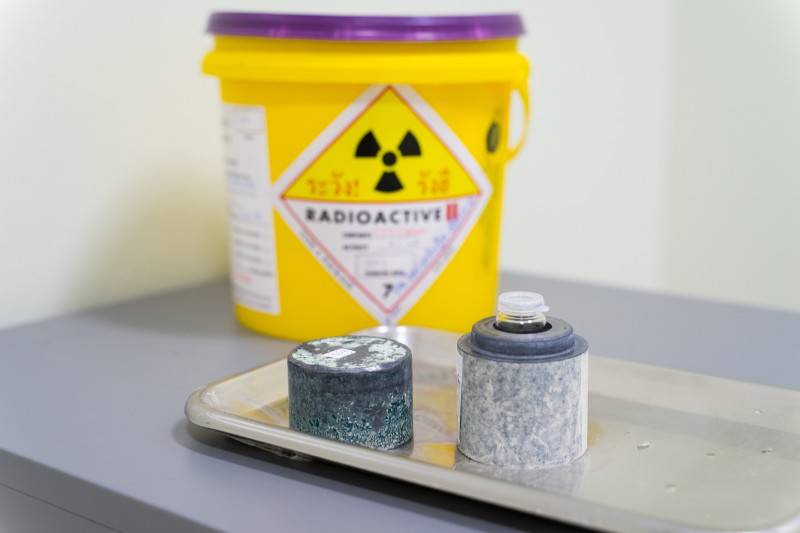
While most metals can be recycled, certain metals are not suitable for recycling due to their hazardous nature.
Here’s a breakdown:
- Plutonium: This radioactive metal can change colors when exposed to oxygen. It's a good conductor of electricity but a poor conductor of heat. Human exposure to plutonium can lead to genetic impairment, radiation poisoning, lung cancer, and even death.
- Uranium: Uranium is a heavy and dense metal found naturally in rocks and oceans. It's used in yacht keels, airplane counterweights, and for radiation shielding. The radioactive decay of uranium heats the Earth's core, causing convection and continental drift.
- Mercury: Also known as Quicksilver, mercury is the only metal that remains liquid at standard temperature and pressure. It's used in thermometers, barometers, and fluorescent lights. Mercury poisoning can occur from consuming contaminated seafood, inhaling mercury vapors, or exposure to water-soluble forms of mercury.
- Lead: This heavy non-radioactive metal is soft and malleable. It's used in building construction, lead-acid batteries, ammunition, and as a radiation shield. Lead is a neurotoxin and can cause brain disorders, blood disorders, and nervous system damages if ingested or inhaled.
In essence, while metal recycling plays a pivotal role in conserving resources and reducing environmental impact, it’s crucial to be aware of the metals that are not suitable for recycling due to their hazardous nature.
The Metal Recycling Process: How is Metal Recycled?
Metal recycling is a fascinating journey from discarded items to new, usable products.
It’s a process that not only conserves our natural resources but also reduces the need for mining and saves energy.
Let’s delve into the step-by-step process of how metal is recycled:
Gathering Scrap Metal
The journey begins with collecting scrap metal. This can come from various sources, including household scrap like aluminum cans, coat hangers, and appliances, to industrial waste from manufacturing processes. Local communities and scrap metal recyclers play a pivotal role in this initial phase, ensuring that valuable materials don’t end up in landfills.
Sorting the Metals
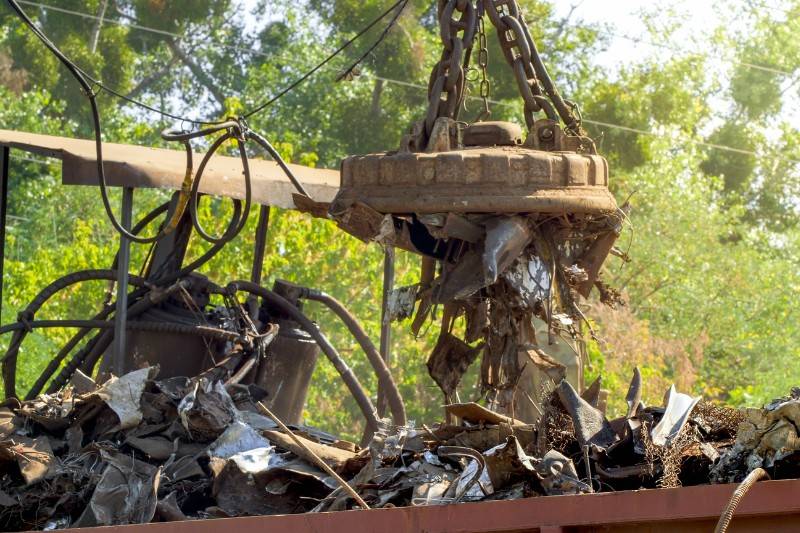
Once collected, the next step is sorting the metals. This is crucial because different metals have different recycling needs. A common method used is magnetism. Ferrous metals, which contain iron, are magnetic.
So, using a magnet, scrap metal recyclers can easily separate ferrous metals like steel from nonferrous metals like aluminum and copper. Other methods include radiation detection and manual inspection.
Shredding
After sorting, metals are shredded into smaller, more manageable pieces. This not only makes the subsequent processes more efficient but also allows recyclers to separate any remaining non-metallic waste. For instance, the insulation around copper wires needs to be removed before the copper can be recycled.
Melting
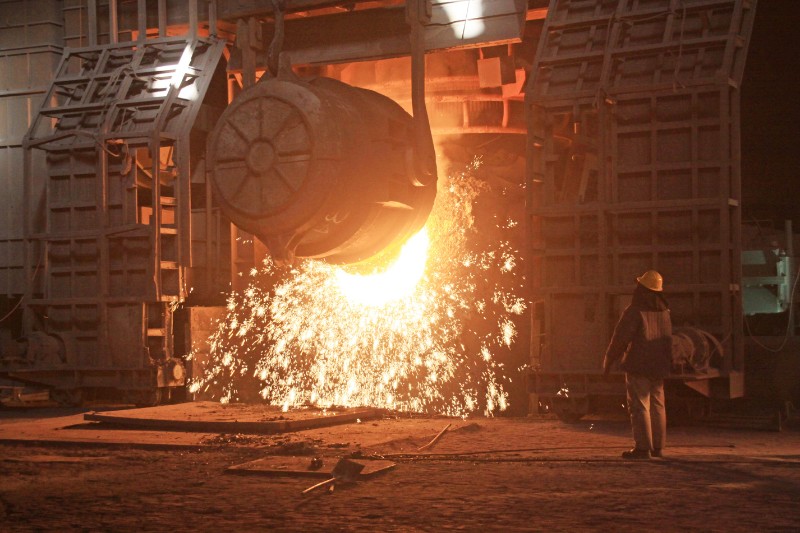
The shredded metals are then melted in a large furnace. Each metal has a designated furnace because every metal has a different melting point. This process is surprisingly energy-efficient, especially when compared to producing new metal from ore. For instance, recycling aluminum requires only a small amount of the energy needed to produce new aluminum from bauxite ore.
Purification
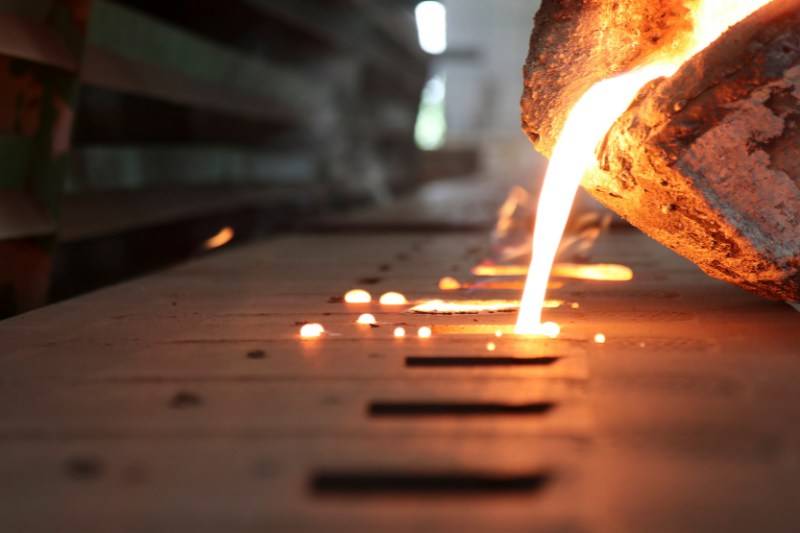
After melting, it’s essential to ensure the metal’s purity. This is done using electrolysis. The molten metal is passed through an electric current, which separates the pure metal from impurities. This ensures that the recycled metals are of high quality and suitable for manufacturing new products.
Solidification
The purified molten metal is then allowed to cool and solidify. It can be molded into different shapes, such as bars, sheets, or specific forms, depending on its intended use. For instance, aluminum might be solidified into blocks, which can then be used to produce various aluminum products, from cans to parts of vehicles.
Transportation to Manufacturers
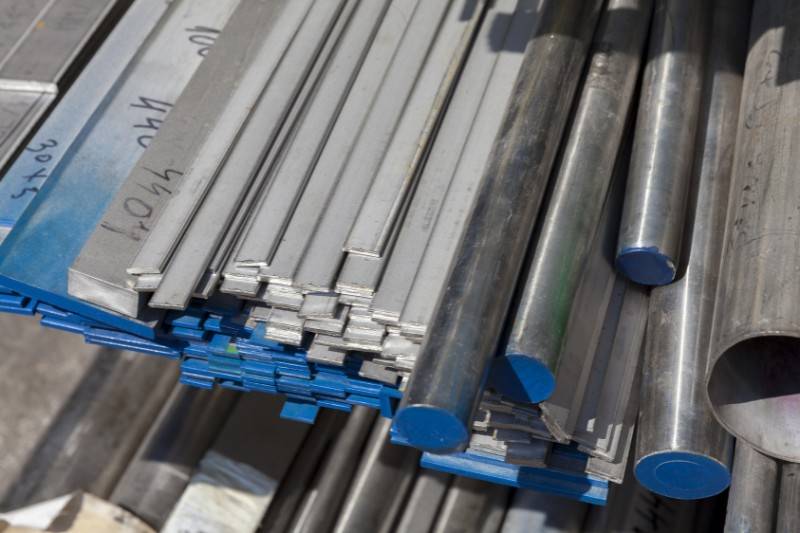
Once solidified, the recycled metals are transported to manufacturers who will use them to produce new metal products, completing the recycling loop. Factories and construction sites are the most common recipients of these finished metal products.
How Can You Recycle Metals (For Individuals)?
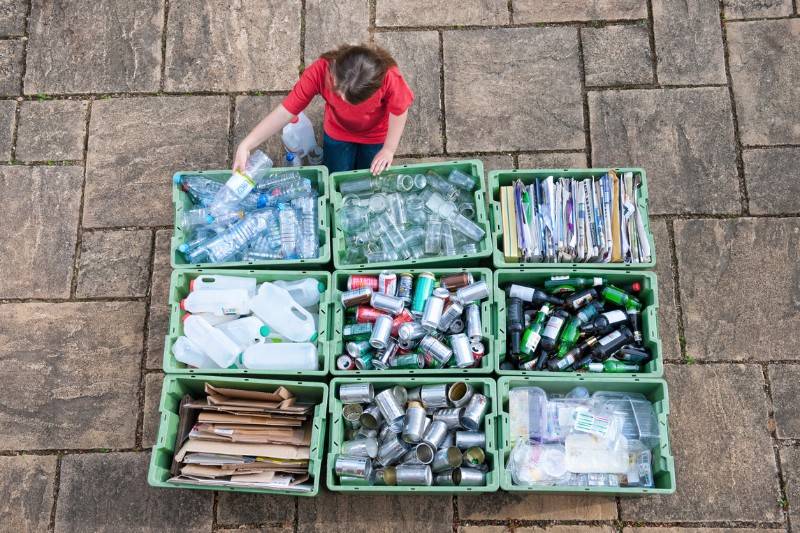
In today’s world, where our natural resources are depleting at an alarming rate, recycling metal has become more crucial than ever. Not only does it save energy, but it also reduces the need to extract and manufacture new metal, which can be detrimental to our environment.
But how can an individual, like you and me, contribute to this cause from the comfort of our homes?
Let’s dive into a step-by-step guide on recycling metals for individuals:
Start with Household Scrap
Begin by collecting household scrap. From old metal products like coat hangers, kitchen utensils, and even washing machines, there’s a treasure trove of recyclable metals right in our homes. Remember, even small items like metal rings from binders or the aluminum from soda cans can be recycled.
Separate Ferrous and Non-Ferrous Metals
Use a simple magnet test. If the magnet sticks, it’s a ferrous metal like iron or steel. If not, you’re dealing with nonferrous metals like aluminum, brass, or copper. This distinction is essential as nonferrous metals often have a higher value at scrap yards.
Clean Your Metals
Before you head to the scrap yard, ensure your metals are clean. Remove any non-metal attachments, rinse off any residues, and separate metals by type. This not only ensures a smoother recycling process but can also fetch you a better price.
Locate Nearby Scrap Yards
A quick online search can help you find local scrap yards. Some might specialize in certain metals, while others might offer better prices. It’s always a good idea to call ahead and check.
Understand the Value
Different metals have different values. For instance, metals like brass, copper, and aluminum are often more valuable than common metals like tin or iron. Knowing this can help you negotiate better prices.
Be Environmentally Responsible
While most metals are recyclable, some, like certain catalytic converters, contain harmful substances. Ensure you’re disposing of such items responsibly. Some specialized recycling companies handle these materials, ensuring they don’t end up in landfills.
Reuse Before Recycling
Before you decide to recycle, see if the item can be reused. An old metal container can be repurposed as a planter, or an old metal frame can be used for a DIY project. Reusing not only reduces waste but also saves energy that would have been used in the recycling process.
When handling metals, especially sharp edges or corroded items, ensure you’re wearing protective gloves. Safety should always be a priority.
Recycling metal as an individual is not just about making a few extra bucks. It’s about playing a part in conserving our planet’s valuable resources and ensuring a sustainable future. So the next time you come across a piece of metal, think twice before discarding it. Your small act can make a big difference!
Where To Recycle Metal?

Recycling metal is not just an eco-friendly practice; it’s a way to give back to our planet and reduce the strain on our natural resources. But where can you, as an individual, go to recycle your metal items? Here’s a list of places and resources to help you out:
1. Local Recycling Centers
Most towns and cities have local recycling centers that accept a variety of materials, including metals. These centers often have designated bins or areas for different types of metals.
2. Scrap Yards
Scrap yards specialize in buying and recycling scrap metal. They often pay you based on the weight and type of metal you bring in. It’s a good idea to separate and clean your metals before heading to a scrap yard to get the best value.
3. Municipal Programs
Many municipalities offer curbside pickup for recyclables, including metals. Check with your local waste management department to see if they provide this service and what types of metals they accept.
4. Specialized Recycling Programs
Some companies and organizations run specialized recycling programs for specific metal items. For instance, there are programs dedicated to recycling aluminum cans or specific electronic devices.
5. Green Directory by GreenCitizen
GreenCitizen has introduced the Green Directory where you can find all nearby “green” facilities. This directory allows any US citizen to find nearby recycling facilities. Whether you’re looking to recycle electronics, batteries, or metals, the Green Directory can guide you to the right place.
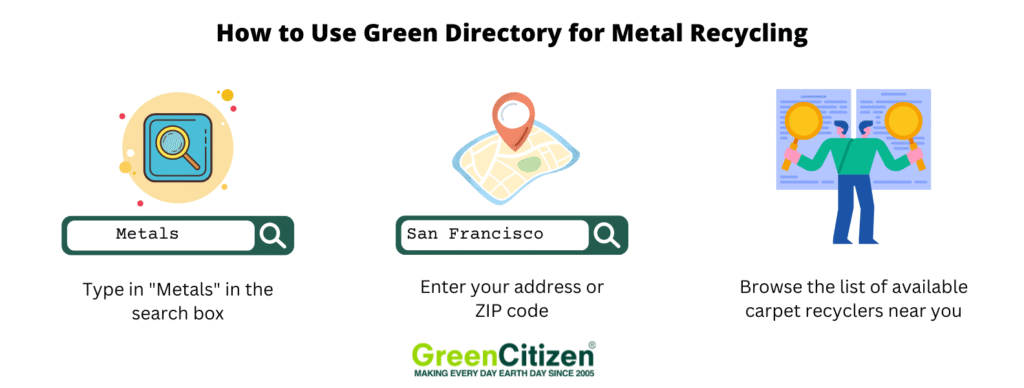
Benefits of Metal Recycling: Why Should We Recycle Metals?
Recycling metals isn’t just about conserving resources; it’s a trifecta of environmental, economic, and societal benefits.
Let’s delve into these advantages:
Environmental Benefits
Recycling metals significantly reduces the energy consumption compared to extracting and processing raw resources. As I said earlier, recycling aluminum saves 94% of the energy required to produce it from ore. This massive energy saving translates to a substantial reduction in carbon emissions.
Extracting and processing raw resources like wood, oil, and ore to make usable materials like paper, plastic, and metal consumes a lot of energy. By recycling, we can conserve these invaluable natural resources.
Recycling diverts metals from landfills, reducing environmental hazards and the need for more landfill space.
Economic Benefits
The recycling industry, from collection to processing, creates numerous jobs, fostering economic growth.
Recycling metals, especially aluminum, requires significantly less energy, leading to reduced production costs. For instance, recycled aluminum metal can be simply cleaned and re-melted to supply aluminum back to the industry.
The metal recycling industry not only conserves resources but also contributes economically. The energy savings from recycling metals, especially those like aluminum, lead to substantial economic benefits.
Societal Benefits
Recycling initiatives often involve community participation, fostering a sense of collective responsibility and unity.
Recycling campaigns and the visible benefits of recycling raise awareness about sustainable living and the importance of resource conservation. As communities witness the tangible benefits of recycling, it promotes a culture of sustainability and encourages more people to adopt eco-friendly practices.
Frequently Asked Questions (FAQ)
You can use a magnet to differentiate between ferrous and non-ferrous metals. If the magnet sticks, it’s a ferrous metal like iron or steel. If it doesn’t, you’re dealing with a non-ferrous metal such as aluminum, copper, or brass. For a more detailed analysis, you might consider using a metal testing kit available at hardware stores.
Yes, certain metals are challenging to recycle due to their properties or potential contamination. For instance, metals like mercury, radioactive metals, and some metal composites are not typically recycled through conventional methods.
The value of recycled metal varies based on the type of metal, its purity, and market demand. Prices fluctuate regularly, so it’s best to check with local scrap yards or recycling centers for current rates.
Copper is often considered one of the most valuable metals to recycle due to its widespread use and high demand. Other valuable metals include brass, aluminum, and certain types of stainless steel.
Metals are recycled by collecting and sorting them based on type, cleaning them to remove any contaminants, and then melting them down. The molten metal is then purified, solidified, and transformed into new products.
A wide variety of metal products can be recycled, including aluminum cans, copper wiring, brass fixtures, steel and iron car parts, and many household appliances. It’s essential to check with local recycling centers to determine which products they accept.
Conclusion
Metal recycling is more than just a trend; it’s a necessity in our rapidly evolving world. As we’ve explored, the advantages of recycling metals span across environmental, economic, and societal realms. From conserving our planet’s precious resources and reducing our carbon footprint to fostering economic growth and community involvement, the benefits are profound.
But the onus doesn’t just lie with industries and governments. Each one of us has a role to play. Every soda can, every piece of old wiring, and every discarded metal utensil holds potential. By recycling these items, we’re not only giving them a second life but also ensuring a healthier, more sustainable future for our planet.
If you’re unsure where to start, remember tools like the Green Directory by GreenCitizen are at your fingertips. It’s an invaluable resource to help you locate nearby metal recyclers and contribute to the global recycling effort.

